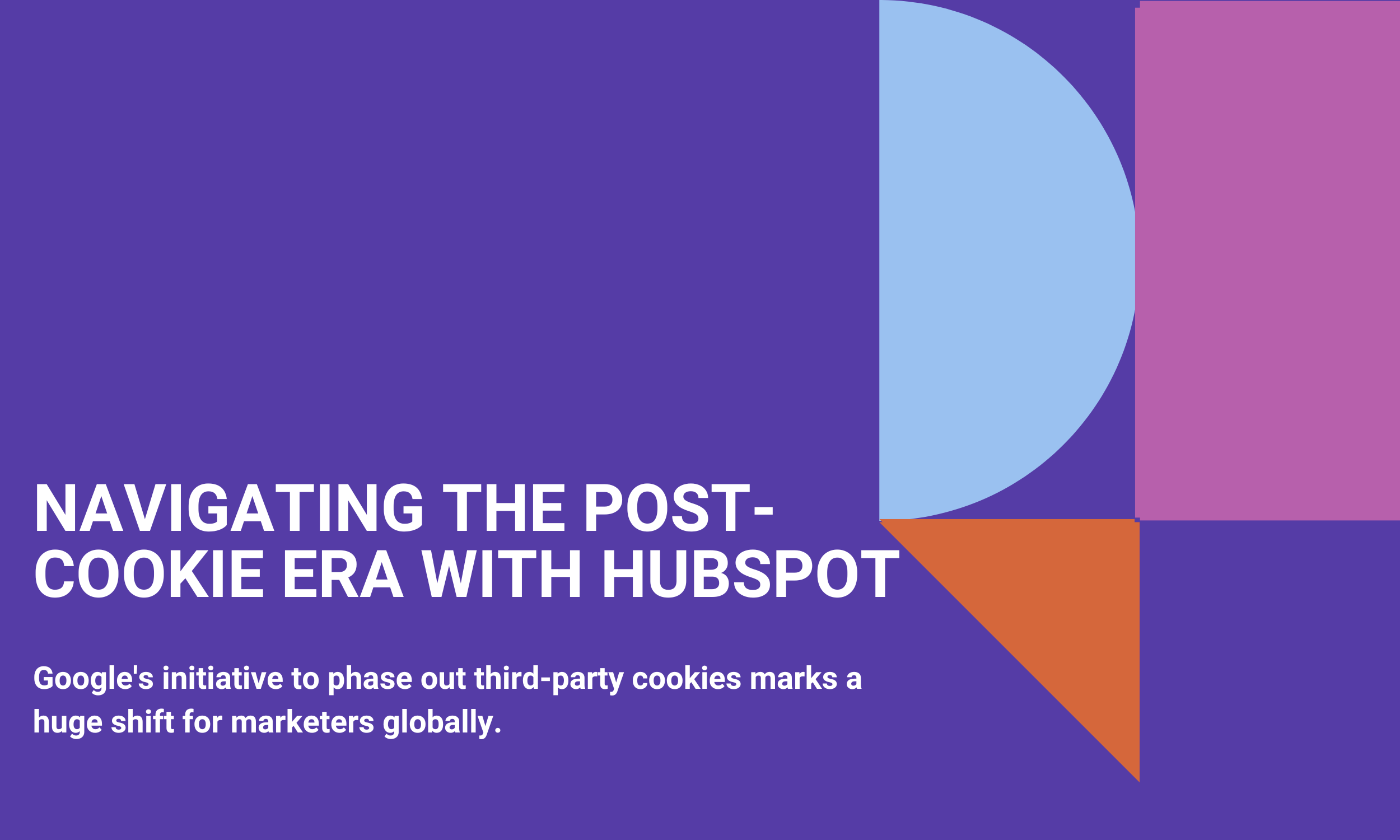Services List
This move, part of a larger effort to improve online privacy, calls into question existing digital marketing techniques. However, HubSpot's unique techniques provide a ray of optimism, presenting new ways to effectively engage with audiences in this shifting climate.

Covered in this article
The End of Third-Party Cookies: A Turning Point for Digital Marketing
HubSpot's Response to the Cookie-less Future
Leveraging HubSpot's Tools for Enhanced Marketing in a Cookie-less World
A New Era of Digital Marketing
The End of Third-Party Cookies: A Turning Point for Digital Marketing
Google's decision to disable third-party cookies in Chrome, the world's most popular browser, marks a pivotal change for marketers, online publishers, and users alike. This testing phase, affecting approximately 1% of global users (around 30 million), is a precursor to a broader implementation planned later in the year. Third-party cookies have long been instrumental in gathering analytics, personalising ads, and tracking user behaviour. With their impending elimination, advertisers have been expressing concerns over potential adverse impacts on their operations.
The Privacy Paradigm Shift
Google's move aligns with a growing trend toward prioritising user privacy in internet browsing. Competitors like Apple's Safari and Mozilla Firefox have already implemented similar features. Google's approach involves seeking user consent for enhanced privacy, with options to temporarily re-enable third-party cookies for specific sites if needed. This strategy is part of Google's broader goal of making the Internet more private and secure.
Industry Reactions and Regulatory Oversight
The advertising industry acknowledges the need for a balanced approach that safeguards consumer privacy while sustaining publisher revenue streams. The UK's Competition and Markets Authority stands as a watchdog, ensuring that these changes do not unfairly disadvantage other businesses.

HubSpot's Response to the Cookie-less Future
Embracing First-Party Data Strategies
As third-party data becomes obsolete, marketers are pivoting towards robust first-party data strategies. This involves enhancing data collection operations and management models, ensuring transparent and personalised communication with customers. HubSpot advocates for a seamless transition, allowing continued outreach to new prospects and leads.
Email Marketing: A New Frontier
Email marketing emerges as a powerful tool in the absence of third-party cookies. Marketers are now leveraging first-party data to create more individualised email experiences. Innovative email software and dynamic content templates facilitate the collection of customer and prospect data. This shift also propels email marketing to the forefront, offering a comprehensive view into zero and first-party data usage.
Focusing on Customer Loyalty and Retention
The deprecation of third-party cookies shifts the marketing focus from customer acquisition to retention and loyalty. By harnessing first-party data, brands can personalise interactions, enhancing customer experience and loyalty. Studies reveal that consumers prefer personalised, relevant communication from brands, underscoring the importance of a tailored approach to retaining customers.
The Rise of Impression-Based Marketing
With the decline of user-based targeting, marketers are turning to impression-based strategies. Artificial intelligence (AI) enables the selection of the best impressions, focusing on the receptivity of the message rather than extensive user data. This approach aligns with the increasing consumer preference for privacy and minimal tracking.
Leveraging HubSpot's Tools for Enhanced Marketing in a Cookie-less World
In the wake of Google's third-party cookie phaseout, HubSpot offers a suite of tools and functionalities to empower marketers in this new landscape. These tools are designed to not only comply with privacy norms but also to ensure that marketing efforts remain effective and targeted. The key lies in understanding and harnessing the potential of these tools to maintain a competitive edge in a rapidly evolving digital marketing environment.
One significant aspect of HubSpot's toolkit is its robust Customer Relationship Management (CRM) system. This system becomes increasingly vital as first-party data takes centre stage in marketing strategies. By effectively utilising HubSpot's CRM system, marketers can glean valuable insights from customer interactions and behaviours. These insights pave the way for more personalised and impactful marketing campaigns, which are crucial in a world without third-party cookies.
Key Features of HubSpot’s Tools to Navigate the Post-Cookie Era:
- Data Integration and Management: HubSpot’s CRM tool allows for seamless integration and management of first-party data. This capability ensures that all customer information is centralised, making it easier to create targeted marketing strategies.
- Personalised Marketing Automation: With advanced automation features, marketers can tailor their campaigns to individual customer needs and preferences, leading to higher engagement and conversion rates.
- Analytics and Reporting: HubSpot provides detailed analytics and reporting tools that help marketers understand customer behaviour, campaign performance, and ROI. These insights are crucial for refining strategies in real-time.
- Lead Nurturing and Segmentation: Effective lead nurturing and segmentation capabilities enable marketers to deliver relevant content to different audience segments, enhancing the chances of conversion.
- Content Optimisation Tools: HubSpot's content optimisation tools aid in creating content that resonates with the target audience, optimised for both relevance and search engine rankings.
- Social Media Integration: By integrating social media platforms, HubSpot allows marketers to extend their reach and engage with audiences on platforms where they are most active.
- Privacy Compliance: HubSpot's tools are designed with privacy compliance in mind, ensuring that all marketing activities adhere to the latest data protection regulations.
Incorporating these tools into marketing strategies not only aligns with the new privacy-centric digital landscape but also offers an opportunity to innovate and excel in customer engagement and retention. HubSpot's comprehensive suite of tools provides a solid foundation for marketers to build upon in this new era, helping to navigate the challenges and seize the opportunities presented by the deprecation of third-party cookies.
A New Era of Digital Marketing
The third-party cookie phaseout symbolises a significant shift in digital marketing, urging marketers to adapt and innovate. By embracing first-party data, focusing on customer loyalty, and leveraging AI for impression-based marketing, brands can navigate this new landscape effectively.
HubSpot's strategies offer a comprehensive guide for marketers to connect with audiences in meaningful, privacy-conscious ways. This change, although challenging, presents an opportunity for long-term growth and stronger customer relationships in the post-cookie era.



